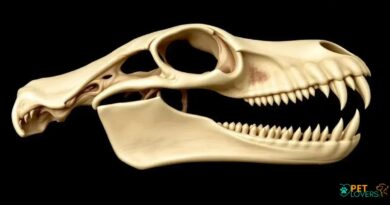What is Nurture vs. Nature
Understanding Nurture vs. Nature
The debate of nurture vs. nature has long captivated scientists, psychologists, and dog lovers alike. At its core, this discussion revolves around the extent to which our environment (nurture) or our genetics (nature) influences behavior and personality. In the context of dogs, understanding this dynamic can help pet owners make informed decisions about training, socialization, and care.
The Role of Genetics in Dog Behavior
Genetics play a significant role in shaping a dog’s behavior and temperament. Certain breeds are predisposed to specific traits, such as herding instincts in Border Collies or guarding tendencies in Rottweilers. These inherited characteristics can influence how a dog interacts with its environment, other animals, and humans. Understanding these genetic predispositions can help owners tailor their training methods to suit their dog’s natural inclinations.
The Impact of Environment on Canine Development
While genetics lay the groundwork for a dog’s behavior, the environment in which a dog is raised can significantly alter its development. Factors such as early socialization, exposure to various stimuli, and the training techniques used by owners can shape a dog’s personality. For instance, a dog raised in a nurturing environment with positive reinforcement is likely to develop confidence and sociability, regardless of its genetic background.
Socialization: A Key Component of Nurture
Socialization is a crucial aspect of nurturing a dog. Early exposure to different people, animals, and environments can help a dog develop into a well-adjusted adult. Proper socialization can mitigate fear and aggression, which may stem from a lack of exposure during critical developmental periods. Owners should prioritize socialization to ensure their dogs grow into friendly and adaptable companions.
Training Techniques: Nurturing Behavior
The methods used to train a dog can also reflect the nurture aspect of the debate. Positive reinforcement techniques, such as treats and praise, can encourage desired behaviors and strengthen the bond between dog and owner. Conversely, harsh training methods can lead to fear and anxiety, negatively impacting a dog’s behavior. Understanding the importance of nurturing training techniques is essential for fostering a positive relationship with a pet.
Nature’s Influence: Breed-Specific Traits
Different dog breeds exhibit unique traits that can be traced back to their genetic lineage. For example, hunting breeds may display a strong prey drive, while toy breeds might be more prone to anxiety. Recognizing these breed-specific traits can help owners manage their dogs’ behaviors more effectively. It is essential to balance these natural tendencies with nurturing practices to ensure a well-rounded pet.
The Interaction of Nurture and Nature
The interplay between nurture and nature is complex and multifaceted. While genetics provide a foundation for behavior, environmental factors can either enhance or diminish these traits. For instance, a genetically predisposed aggressive breed may become a gentle companion if raised in a loving and structured environment. Understanding this interaction is vital for dog owners aiming to cultivate positive behaviors in their pets.
Case Studies: Real-Life Examples
Numerous case studies illustrate the impact of nurture vs. nature in dogs. For example, a rescue dog with a troubled past may exhibit fearful behaviors due to its early experiences. However, with consistent nurturing and training, this dog can learn to trust and thrive in a new home. These examples highlight the importance of nurturing in overcoming genetic predispositions and fostering positive behavior.
Conclusion: Finding Balance
Ultimately, the debate of nurture vs. nature in dogs emphasizes the need for a balanced approach. Owners must recognize the influence of genetics while also committing to providing a nurturing environment. By understanding the roles of both factors, dog owners can create a supportive atmosphere that promotes healthy behavior and strengthens the bond with their pets.




